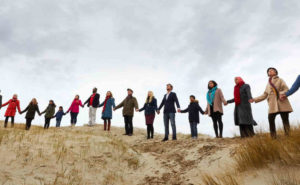The Transformational Index (TI) is a process for creating a bespoke measurement system that starts with the overall objectives an organisation is trying to achieve and uses them as reference points for creating performance indicators. This approach was presented to us by Rachel Collinson, co-chair of Unlock Democracy, an organisation that works for a more accessible and representative political system for U.K. citizens.
In the TI process, usually led by a facilitator with experience leading this approach, an organisation works as a group looking at 56 different words or phrases that describe social or environmental impact. They cover both intended outcomes and also means of achieving them. The group then has to narrow down this list to around 5 key indicators. Using these, the organisation then defines measures that will concretely track progress towards each indicator.
The goal is to find measures that are hard to manipulate, or achieve, simply through changing up short-term tactics that do not contribute to campaign objectives. Key considerations for measuring indicators in the TI approach are that they track things that are precise steps towards outcomes, that the tracking process be feasible and also that the measurement draw upon gamification wherever possible to make tracking progress as stimulating for teams as possible.
A measure is good if it is precise, practical and playful. –Rachel Collinson, citing a principle of the Transformational Index.
Because the Transformational Index is designed in such a way as to measure true progress towards organisational goals, it often reveals what is and what is not actually working. In Rachel’s experience, the TI led Unlock Democracy to discover that one of their programs was not working and because of this, they were able to pivot away from it before they invested too much energy and resources.
How do you measure gifts of time, expertise and leadership? What indicators can you use to assess grassroots power building, organising and volunteer initiatives? This case study is part of a year long Measuring People Power project with over 500 participants from 170 global orgs that explored these questions. Find out more and get the key takeaways!



